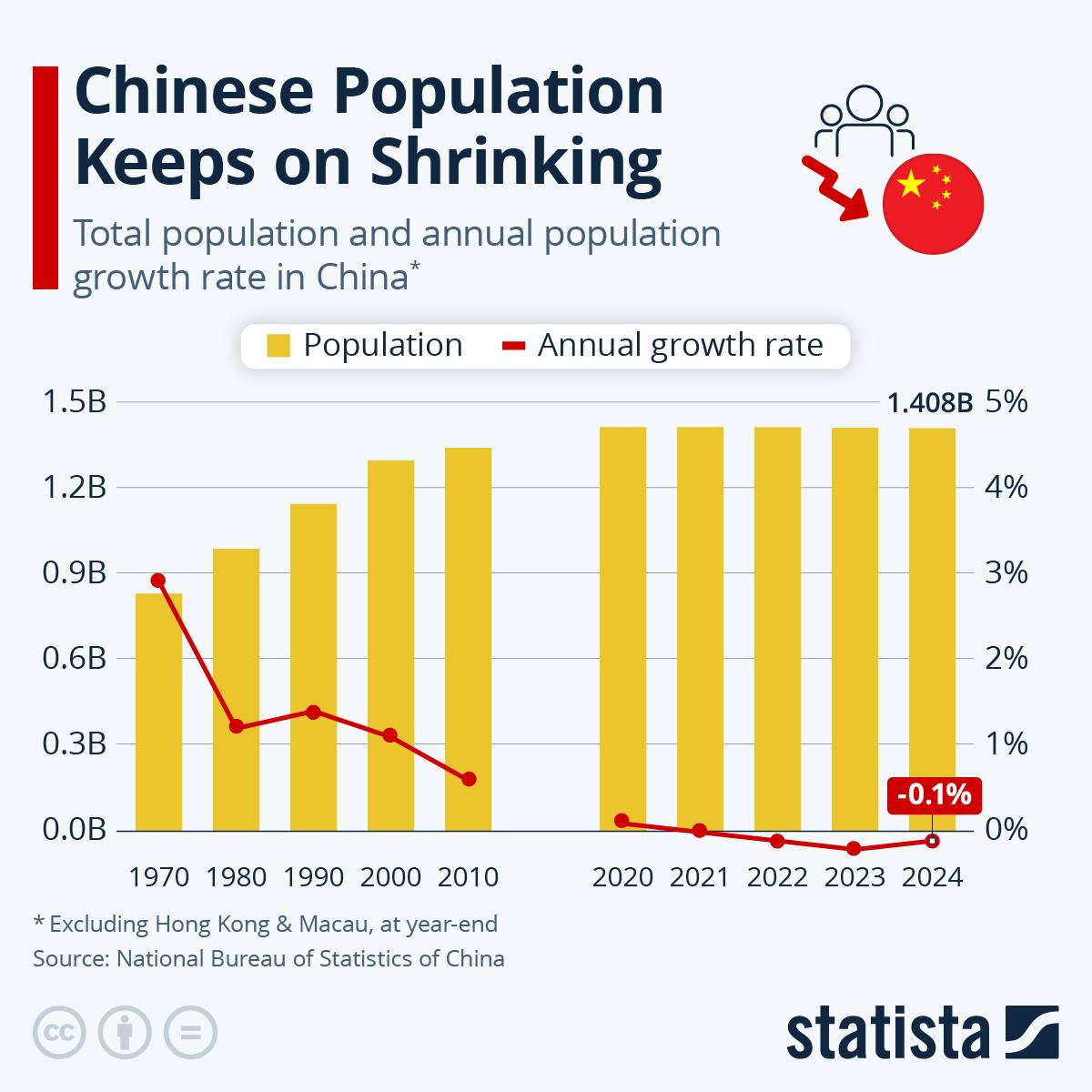
Economic Impact: A declining birth rate leads to a shrinking workforce, which can affect economic growth.
As the working-age population decreases, there are fewer people to sustain productivity and innovation. This demographic shift can result in labor shortages, particularly in industries that rely on manual labor, potentially increasing wages and production costs.
Moreover, a smaller consumer base can impact domestic demand, which is crucial for economic expansion.
Aging Population: The low birth rate coupled with increased longevity means China's population is aging rapidly.
This demographic shift puts pressure on social security systems, healthcare, and pension funds, as there are fewer young people to support the growing number of elderly citizens.
The proportion of the population over 60 is projected to increase significantly, which could strain resources and lead to higher public expenditure on healthcare and eldercare services.
Policy Responses: The Chinese government has acknowledged these issues and has tried to reverse the trend by relaxing family planning policies, offering incentives for childbirth, and promoting a culture of larger families.
However, these measures have met with limited success, suggesting that the fertility rate might not recover to previous levels due to entrenched socio-economic factors.
Global Implications: China's demographic trajectory could influence global economic dynamics, especially considering its role as the world's second-largest economy.
A diminished population might affect global trade patterns, labor markets, and even geopolitical strategies, as China navigates its economic policies with demographic constraints in mind.
In conclusion, China's declining birth rate presents multifaceted challenges that touch on economic, social, and international dimensions. The long-term effects on China's role in the global economy and its internal stability are areas of concern, prompting ongoing policy adjustments and debates on how best to address this demographic shift.
@Grok
Discuss.


